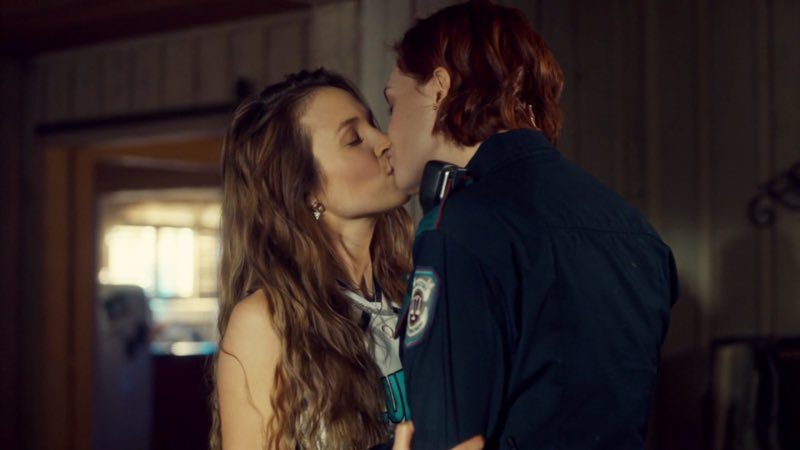Tab Sylvester sings the praises of Wynonna Earp‘s same-sex love story
Although it wasn’t until season three that Kat Barrell was finally featured in the opening credits of Syfy’s Wynonna Earp, fans knew that this moment was inevitable.
Barrell plays Sheriff Nicole Haught, who runs the police department in Purgatory. Her relationship with Waverly Earp, played by British actress Dominique Provost-Chalkley, has been a crucial representation of a lesbian relationship on television since its start.
I’ve watched the show since it first premiered on Syfy back in 2016. I’ve seen the development of “Wayhaught” (Nicole and Waverly’s ship name) from the beginning and have watched their relationship come together into what it is now.
It’s one of the central plots of the show and incredibly important to the show’s queer female fans. After years of seeing other queer women on television being blindly killed off by stray bullets and superficial wounds, Wayhaught is our lady-knight in shining armour.
Whereas most shows only use the queer female character as a prop or side-piece, Wynonna Earp gets it right by including Haught in the main storyline. She’s also given a great background story, which we normally don’t get with other queer female characters either. The show portrays Haught as more than just her sexuality – we get to see her outside the relationship with Waverly, because she’s also her own person who’s not defined by her relationship or sexuality.
The fact that we also get to witness Haught’s promotion from deputy officer to sheriff of Purgatory in season three is a big deal, because it shows significant character growth for a queer character that we quite frankly haven’t seen much of in other television shows.
To put it in perspective, in 2016 there were 18,000+ straight characters on TV, only 383 lesbian/bisexual characters, 95 dead lesbian/bisexual characters, 76 lesbian/bisexual characters still on air, and 30 happy endings for lesbian/bisexual characters. Death by murder was the most common scene amongst queer women.
Most of the time, their deaths had no meaning or emotional attachment to them. Their deaths were simply used to just move the story along and further the story of the main character, who is usually a white, cisgendered, heterosexual male.
Queer women take up only a fraction of characters on television, then when one of them dies it feels like that representation is snatched away from us.
Wayhaught is powerful in the sense that it’s not just a short-term fling to try to gain more ratings from queer viewers. It is a long-term commitment that has overcome supernatural elements and bodily demon possessions and has survived multiple death threats (including a stray bullet).
The person ultimately responsible for such positive representation is former showrunner and exec producer of Lost Girl, our queen, Emily Andras. As the creator of Wynonna Earp, Andras has given queer female audiences something that they can hold onto – hope. Hope for a positive WLW (women loving women) relationship that doesn’t end in death, cheating, or a weak write-off to fulfill a male protagonist’s plot.
